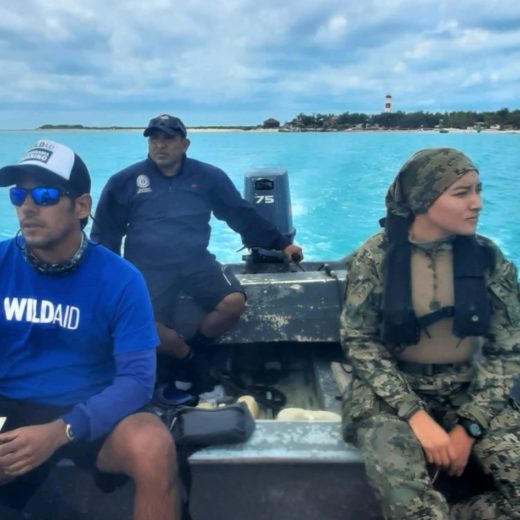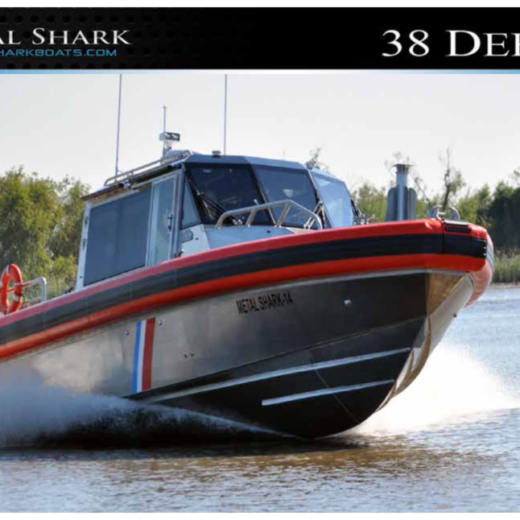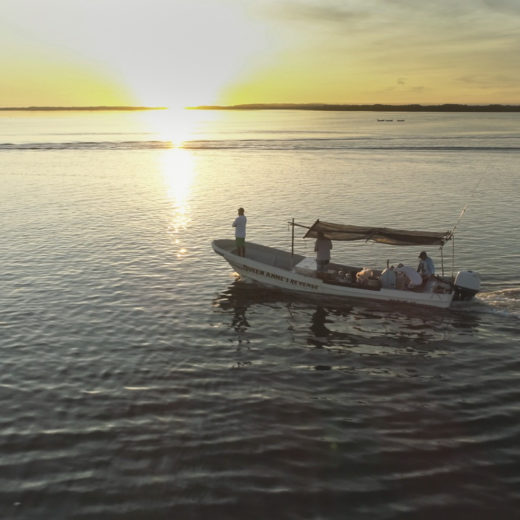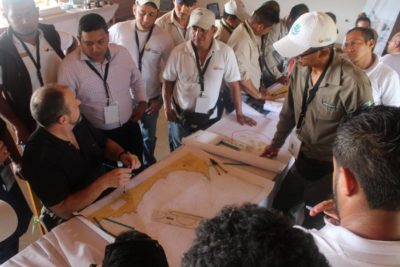
BY SILVIA SANCHEZ BOR, WILDAID MARINE PROGRAM
Park rangers in Ecuador risk their lives every day to protect marine areas from illegal fishing and destruction of critical habitat. Together with Conservation International, WWF, the Ecuadorian Ministry of Environment and the Galapagos National Park Service, WildAid hosted a maritime operations training for park rangers from 17 Ecuadorian marine protected areas, ministry of environment officials, fishery officers and other marine practitioners last month to ensure the rangers have the right knowledge to handle any situation that comes their way. Rangers often venture unarmed at night in the face of danger including armed illegal fishers and pirates, to protect Ecuador’s marine environment and endangered species. According to one of the Machalilla park rangers, even a simple task like retrieving a fishing net from the water comes fraught with risk.
Recently, the Machalilla park rangers conducted a night patrol near Isla de la Plata (where all fishing is prohibited) and spotted flashing lights in the water. They realized the lights were coming from an illegal gill net and were used to mark its position since the weighted net cannot be seen from the surface. The rangers waited for someone to retrieve it, but when nobody did, they pulled the 800-yard net onto their boat. While pulling up the net, they spotted four sea turtles entangled in the mesh and quickly released them back to the ocean—saving them from a slow death as incidental bycatch.
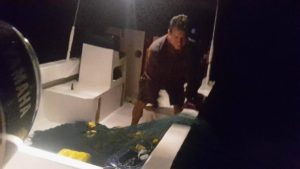

However, their actions did not go unnoticed, and other fishers on the water that night spread the word that rangers had confiscated fishing gear and were unaccompanied by armed Navy officials. The rangers realized they were being followed by angry fishers. They turned off their lights and called the Navy via radio to provide backup, while they found a safe place to land. Luckily the rangers escaped unharmed that night, but this story could have had a much different turnout had the rangers not realized they were being followed.
Unfortunately, stories like this are all too commonplace for the rangers protecting Ecuador’s waters. The use of simple tools like VHF radios and planning for emergency situations possibly saved lives that night. Together with partners, we provide the resources that these rangers need to fulfill their job and increase safety at sea. We also provide training that ensures effective planning, tactics to deal with dangers and to ensure that when they catch an illegal fisher, there are repercussions.
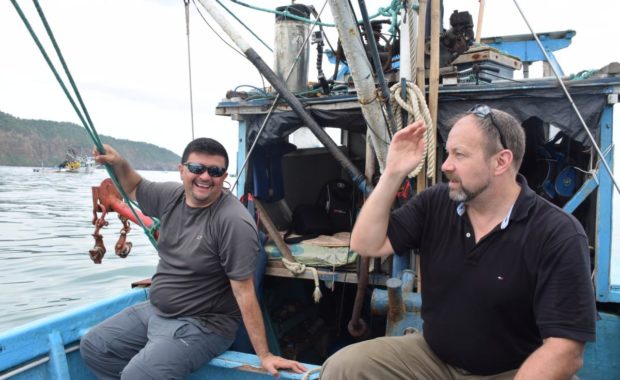

The workshop last month emphasized safety at sea, best practices for patrolling, evidence collection and boarding procedures. It also included hands-on exercises allowing the rangers to brainstorm ways to increase compliance, role-play different scenarios, learn new navigation techniques and ensure that illegal activities are penalized.
Enforcement of marine regulations ensures both sustainable fisheries and responsible tourism is being practiced in Ecuador’s coastal marine parks. Systematic training, a key component of our model, is vital for refreshing skills and fostering collaboration between enforcement agencies. It also gives the rangers the opportunity to prepare strategies to deal with risky situations, which are inevitable as they perform their duties.
Thanks to the support of our donors, WildAid has been working in coastal Ecuador since 2014 to strengthen enforcement, prevent illegal fishing and ensure the protection of its pristine marine environments.
Stay in touch and get the latest WildAid updates.
SIGN UPAbout WildAid
WildAid is a non-profit organization with a mission to protect wildlife from illegal trade and other imminent threats. While most wildlife conservation groups focus on protecting animals from poaching, WildAid primarily works to reduce global consumption of wildlife products such as elephant ivory, rhino horn and shark fin soup. With an unrivaled portfolio of celebrity ambassadors and a global network of media partners, WildAid leverages more than $308 million in annual pro-bono media support with a simple message: When the Buying Stops, the Killing Can Too.
Journalists on deadline may email communications@wildaid.org
